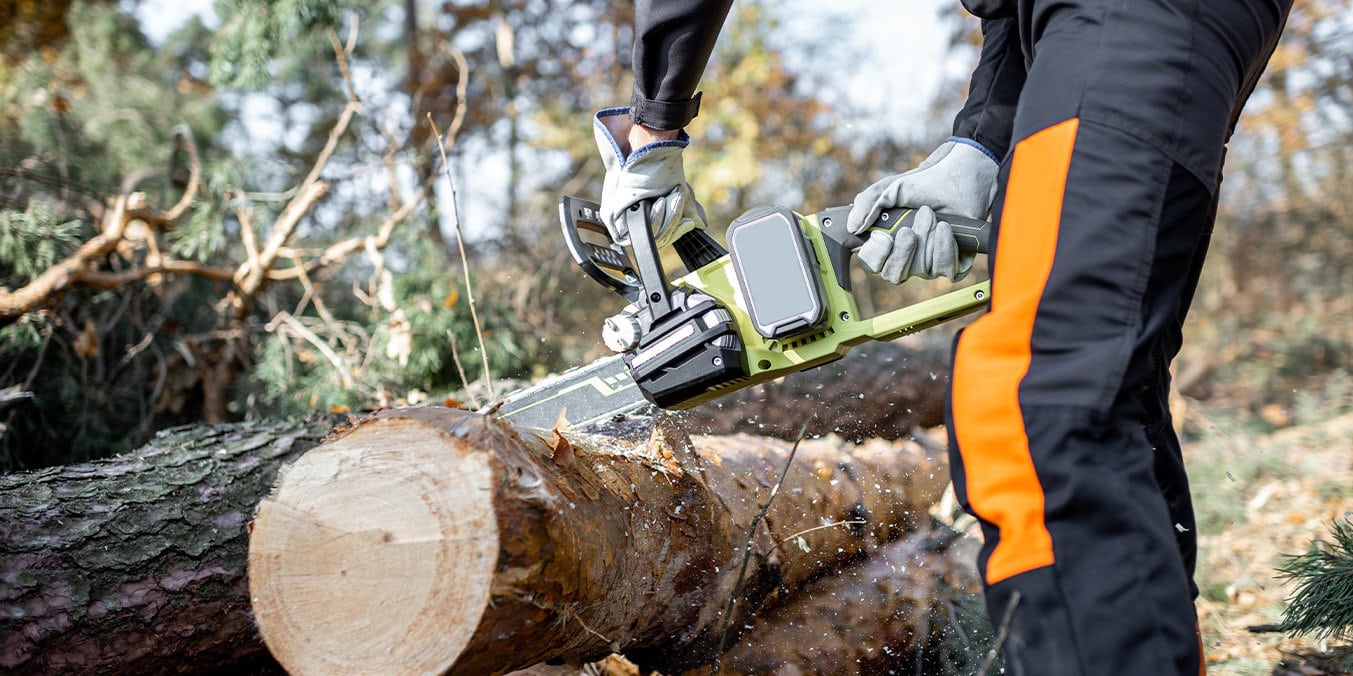The logging industry is an integral part of the Canadian economy, and the work loggers do is not only dangerous but also essential. So, how much do loggers make in Canada? This question is of interest to many, especially those considering a career in this field.
In Canada, the income of loggers varies based on several factors, including experience, location, and the specific role they play in the logging process. On average, loggers in Canada earn a competitive salary, reflecting the physically demanding and hazardous nature of their work.
However, the importance of loggers extends beyond their earnings. Their role is crucial to the functioning of the country, contributing to the production of a wide range of wood products that are used both domestically and internationally.
In the following sections, we will delve deeper into the earnings of loggers in Canada, the factors that influence these earnings, and the significance of their role in the country’s economy.
Table of contents
What is a logger and what do they do
A logger, often referred to as a lumberjack, is a professional engaged in the logging industry. Their primary responsibility is to cut down trees and prepare them for transport and further processing. This role is crucial in the production of timber, a vital resource used in various industries such as construction and paper manufacturing.
Loggers typically operate in forested areas, but their services may also be required in urban settings for tree removal tasks. The nature of their job demands proficiency in using a range of tools and machinery. From traditional axes and chainsaws to advanced machines that can slice through thick tree trunks, a logger's toolkit is extensive and varied.
Once a tree is felled, the logger's job is far from over. They must then detach the branches and limbs from the trunk, a process known as limbing. Following this, the trunk is cut into manageable sections or 'logs'. These logs are then ready for transportation to sawmills or other processing facilities.
Logging is a physically demanding profession. It requires not only strength and stamina but also a high degree of precision. Loggers must be able to navigate through rugged terrain and operate their equipment safely. The dangers associated with logging make it one of the most hazardous jobs, emphasizing the importance of safety measures and guidelines.
How much do loggers make in Canada
The typical yearly wage for a logger in Canada is $55,882 or $27 per hour. The average salary for a Logger is between $41,656 and $67,386 annually.
This labour data is collected from a national salary survey of employers and anonymous employees by ERI’s compensation data.
To gain a deeper understanding of salary estimates and living costs of a potential relocation, including; average pay, effective income tax rates, actual housing sales data, rental rates, gasoline prices and medical care premium costs, check out ERI.
Loggers who work in remote regions or in hazardous conditions may also receive additional compensation. In addition to their salary, many loggers also receive benefits such as health insurance and paid vacation days. Overall, logging is a well-paying career that offers good benefits and opportunities for advancement.

The importance of the logging industry to Canada
The importance of the logging industry to Canada is multi-faceted, contributing significantly to the country's economy, employment, and sustainability efforts. As one of the world's leading producers and exporters of forest products, Canada's logging industry is a powerhouse that fuels the nation's economic growth.
The logging industry is a massive sector in Canada, providing a wide range of wood products that are used globally. These products include lumber, pulp and paper, and wood chips, all of which are essential in various industries. The industry's extensive operations generate billions of dollars in export earnings, making it a vital part of Canada's economy.
Moreover, the logging industry is a significant employer in Canada. It provides over 360,000 direct jobs and almost 500,000 indirect jobs, supporting many communities, including indigenous ones. The industry's role in employment is a crucial factor in its importance to the country.
Beyond its economic contributions, the logging industry plays a vital role in maintaining healthy forests. Through strategies such as clear-cutting and shelterwood logging, the industry helps manage forest growth and biodiversity. These practices involve the careful removal of trees to allow for new growth and the preservation of seed-bearing trees for regeneration. This approach ensures the sustainability of Canada's forests, contributing to the country's efforts against climate change.
The logging industry also plays a role in the country's carbon management. Forests are natural carbon sinks, and through sustainable logging practices, the industry helps maintain this balance. This is particularly important in the face of global climate change challenges.
In conclusion, the importance of the logging industry to Canada cannot be overstated. It is a sector that drives the economy, supports communities, and contributes to the country's sustainability efforts. As the world continues to evolve, the logging industry's role in Canada's growth and development remains significant.

What the future of the logging industry looks like in Canada
The future of the logging industry in Canada is poised for transformation, driven by increasing global demand, technological advancements, and a strong focus on sustainability. As one of the world's leading exporters of high-quality wood products, Canada is well-positioned to capitalize on these trends and ensure the continued growth and relevance of its logging industry.
The global demand for Canadian wood products, particularly in Asia, is on the rise. This demand is fueled by the recognition of Canadian wood as a high-quality, sustainable material suitable for a wide range of applications. This trend presents a significant opportunity for Canadian loggers and the broader industry to expand their markets and increase their export earnings.
However, meeting this growing demand will require the industry to adapt and innovate. Technological advancements are expected to play a crucial role in this process. New technologies and processes are being developed that will enable the industry to harvest trees more efficiently and sustainably. These technologies will not only increase productivity but also help to minimize the environmental impact of logging activities.
Sustainability is another key factor shaping the future of the logging industry in Canada. The industry is increasingly recognizing the need to balance economic growth with environmental responsibility. This is reflected in the adoption of sustainable logging practices and the emphasis on managing forests for their long-term health and productivity.
How to find logging work in Canada
If you’re interested in a career in logging, the best way to find work is to contact the forestry companies directly, or search popular job advertisement sites like; Indeed or Job Bank. They will be able to tell you about any logger jobs that are available and those with similar job titles.
The best way to get started in logging is to complete an accredited training program. These programs provide you with the skills and knowledge that you need to be a successful logger.
Another good way to get into the industry is to get one of the entry-level positions and work your way up.
The logging industry is a vital part of the Canadian economy. It provides good-paying jobs for thousands of Canadians and makes a significant contribution to the country’s GDP. If you’re looking for a challenging and rewarding career, logging may be the perfect option for you.
Conclusion
Logging is a vital part of the Canadian economy, and it offers good wages and benefits to those who work in the industry. Despite the dangers involved, the average logger salary in Canada is very high. If you are considering a career in logging, it is important to understand the risks involved. However, with proper safety precautions, logging can be a safe and rewarding profession.
We hope our article on how much do loggers make in Canada was helpful! If you are planning on moving to Canada, check out our moving to Canada guide or get in contact!
Nicola Wightman
Nicola Wightman is a regulated Canadian Immigration Consultant (RCIC) under the College of Immigration and Citizenship Consultants (CICC). Her professional immigration consultant number is R706497.
Canadian immigration
Learn about moving to Canada, the Express Entry immigration process, working in Canada, studying in Canada, and more.
January 12, 2025
Trudeau Steps Down – What’s in Store for Canada’s Immigration Policies?
Prime Minister Justin Trudeau has announced his resignation as the leader of the Liberal Party and…
December 11, 2024
New Immigration Pathways Canada 2025: What You Need to Know
Canada is introducing several new immigration pathways in 2025, offering exciting opportunities for…
December 10, 2024
Major Express Entry Changes Proposed to Address LMIA Fraud
Canada’s immigration system may soon undergo significant Express Entry changes, as Immigration…
Start Your Canadian Immigration Journey
Our experts make the process clear, stress-free, and successful, so you can move forward with confidence and focus on what matters most.

Contact Us
Immigration questions and service enquiries
Consultation
Speak to an expert
immigration consultant
"*" indicates required fields



